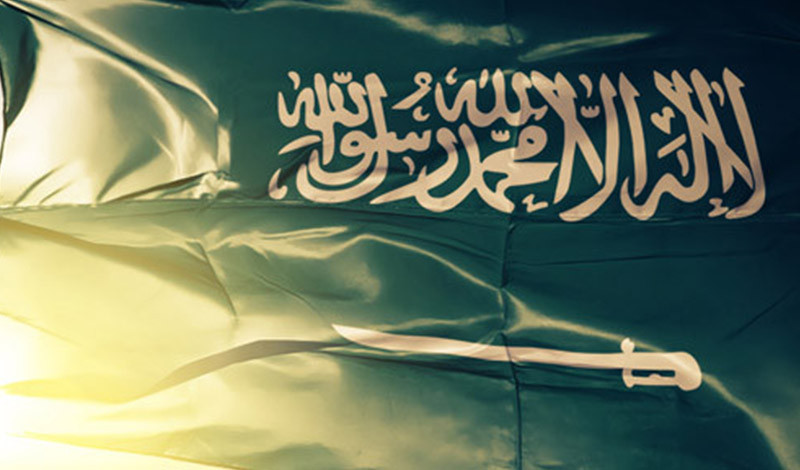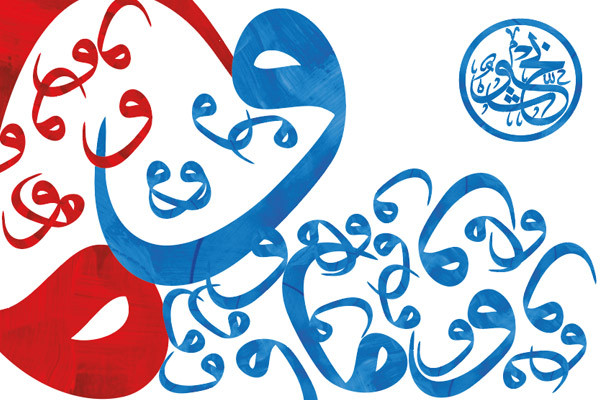Riding The Arabian Wave of Change in Saudi Arabia
The international media has been unusually intrigued by this week’s announcement that HM King Salman Abdulaziz has elevated his 31-year-old son HRH Prince Mohammed bin Salman to be the new Crown Prince of Saudi Arabia in place of HRH Prince Mohammed bin Nayef.

- by Angus Taverner ,
- Friday, 23rd June, 2017
The international media has been unusually intrigued by this week’s announcement that HM King Salman Abdulaziz has elevated his 31-year-old son HRH Prince Mohammed bin Salman to be the new Crown Prince of Saudi Arabia in place of HRH Prince Mohammed bin Nayef. At the age of 82, and believed to be in faltering health, many commentators around the world immediately saw this week’s announcements not only as an indication of generational change but also of a growing desire within Saudi Arabia for rapid and radical social reform.
The announcement of the further elevation of Prince Mohammed bin Salman – it seems universally referred to as MBS – has not come as any great surprise to Saudi watchers. Since his arguably more surprising elevation first to Minister of Defence and then to Deputy Crown Prince over the past three years, MBS has swiftly emerged as one of the best-known Saudi figures on the international stage. He has become associated with the drive for economic and social reform, and he is widely seen as the prime mover in the Saudi-led coalition’s intervention in Yemen, and earlier this month with Saudi’s moves to isolate Qatar. In short, any sense of surprise at this week’s changing of the line of Saudi succession has been blunted by previous speculation that these changes have long been in King Salman’s mind and that it was only a matter of time before MBS was elevated to the position of Crown Prince and therefore Saudi Arabia’s ‘Ruler in Waiting’.
The news of this week’s change of succession immediately led to consideration of what effects this might have on the politics and economics of the Gulf region and the wider Middle East.
In the diplomatic and strategic sphere, it seems that Donald Trump’s recent visit to Riyadh – his first international destination as US President – not only seems to have ‘greenlighted’ Gulf action to enforce change on Qatar but also MBS’s position as Saudi’s next Ruler. With US support, the Saudis seem likely to feel emboldened in a series of strategic and diplomatic matters, all of which will have important consequences for the future direction of the GCC and likely implications for worldwide efforts to contain Islamist extremism.
First, events since the Trump visit seem to have signalled unwavering US – and British and French – support for coalition operations in Yemen. Despite continuing criticism of the coalition’s lack of concern for human rights, the impact of famine, the mounting cholera outbreak, and this week’s claims of UAE involvement in torture, there appears little sign that the coalition will face any concerted Western effort to rein back on efforts to contain the Houthi rebels and forces still loyal to former President Ali Abdullah Saleh.
In turn, Mohammed bin Salman remains closely associated with his father’s more overt efforts to contain creeping Iranian hegemony and to halt Tehran’s push, not only into Iraq and Syria, but also into the Arabian peninsula itself – through agitation of Bahrain’s Shia, support for Yemen’s Houthi and even deliberate courting of Qatar and Omani exceptionalism. King Salman clearly sees Iran as the primary threat to Saudi dominance in the region and sees his son as the man most likely to carry on this fight after he has gone.
MBS has been closely associated with this month’s unanticipated moves to isolate Qatar and to put renewed pressure on the ruling Al-Thani family comply with the wishes of fellow GCC member-states. Some critics have suggested that the young Prince Mohammed bin Salman lacks the wisdom of strategic patience and the kind of transactional approach to regional diplomacy that has long characterised intra-Gulf relations. Instead, his demand for urgency and seemingly impulsive nature are seen by some critics as liable to ‘rock the boat’ too much, putting the GCC at risk of foundering on the rocky shores of its enemies. However, other commentators clearly believe that in his sheer determination to bring about change and in his decisive approach, MBS will enable change on all fronts, including perhaps the fracture of the ruling family’s fraught relationship with austere Wahhabism.
In all that he does, Prince Mohammed bin Salman seems to be much influenced by the example of the UAE and particularly the manner in which both Abu Dhabi and Dubai have embraced the necessity of so-called ‘Emiratisation’ and the parallel drive for economic diversification to reduce dependence on oil. While only 29 percent of the UAE’s GDP is attributable to energy production, in Saudi Arabia it remains nearer to 90 percent.
And it is arguably, the decline in oil prices over the past three years that has paved the way to Saudi Arabia’s changing outlook and willingness, albeit only hesitantly so far, to embrace the need for economic and structural reform. MBS is clearly seen as the embodiment of this desire for change and, with the price of a barrel of oil once again falling below $45 this week, even the most stubborn conservatives in the Saudi establishment can see that the old compact between rulers and ruled, built on a complex system of generous public subsidy, cannot be sustained forever.
It is noteworthy that MBS is seen to have developed a close working relationship with HH Sheikh Mohammed bin Zayed al-Nahyan in the UAE. Both men recognise the need for change. They also appear agreed that neither Saudi nor the UAE can continue relying on external strategic guarantees to ensure the security of the Arabian Gulf. Accordingly, whether it is intervening in regional wars or reforming their economies, both leaders seem to share a view that the Gulf states must be prepared to take greater responsibility for themselves and develop capabilities to defend against adversaries; whether Iranian meddling in the region or a still weak global economy.
So at the end of a seemingly momentous week in the history of Saudi Arabia and the Gulf, it should hardly be surprising that international commentators have become so excited by the prospect of significant generational change, likely ushering in the moment when the sons of King Abdulaziz finally hand over to the third generation – not just in their 50s or 60s but, in the case of MBS, in his early 30s. It seemed hardly surprising that at least one commentator suggested this week that Mohammed bin Salman could emerge as the most significant Saudi Ruler since King Abdulaziz bin Abdulrahman passed away more than half a century ago.
For many outside observers, there are likely to be many questions about his adequacy to the task – most seriously how far and fast he can bring about real and sustainable modernisation of Saudi’s economy without at the same time risking social stability and the strength of the nation’s economy. From the outside the task appears huge and daunting. More than any other Arab country, Saudi Arabia remains a byword for Arab conservatism and austere religious belief. Equally, Saudi Arabia is a country of young people and not ossified old men. The appetite for change is almost certainly more deeply rooted than many outsiders acknowledge. Accordingly, the challenge for the future King Mohammed bin Salman may be less about convincing young Saudis of the need for reform but in controlling the pace and boundaries of that reform so that the sheet anchor of the Arab world does not become dislodged. The outside world would be deeply concerned if a future Saudi Arabia were to explode into violent revolution. Riding this youthful horse of reform swiftly but under control seems likely to be the key challenge that Prince Mohammed bin Salman has taken on this week.

Angus Taverner
(Director Global Affairs Division) (former)

